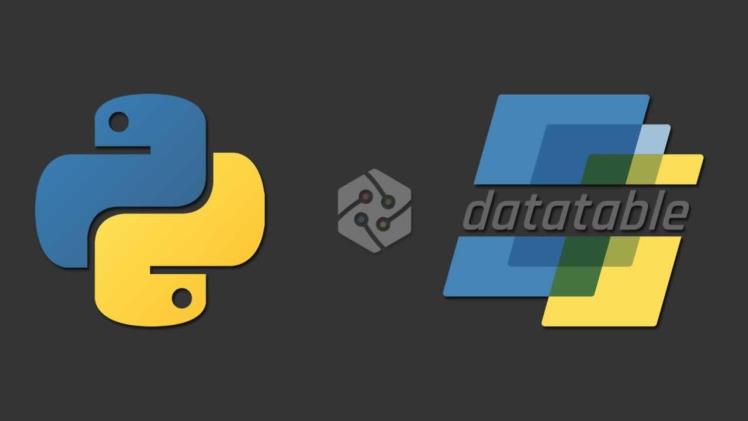DataTables are a fundamental concept in data science, providing a structured way to organize and manipulate data for analysis, modeling, and visualization. In this article, we’ll explore what DataTables are, why they are essential in data science, and how they are commonly used.
What is a DataTable?
A DataTable, as the name suggests, is a structured table-like data structure used to store and manage data efficiently. It’s a two-dimensional representation of data, where rows represent individual data records, and columns represent attributes or variables associated with these records.
Key characteristics of DataTables include:
1. Tabular Structure:
DataTables are organized in rows and columns, similar to a spreadsheet or a database table. Each row typically represents a unique data point or observation, while each column represents a specific attribute or feature.
2. Homogeneous Data:
In a DataTable, data within a single column is usually of the same data type. For example, a column may contain integers, text, dates, or other specific data types. This homogeneity simplifies data processing and analysis.
3. Flexibility:
DataTables are flexible and can accommodate different data formats. This versatility makes them suitable for various types of data, from structured to semi-structured or even unstructured data.
4. Headers:
DataTables often include headers for columns, which provide a description of what each column represents. Headers make it easier to understand the data and its context.
5. Data Integrity:
DataTables often have mechanisms to ensure data integrity, such as data validation rules, constraints, and data types. This helps maintain the consistency and accuracy of the data.
Why Are DataTables Important in Data Science?
DataTables are the foundation of data science, providing a structured and organized way to work with data. You can learn this data science course in Surat from the top institute. DataTables play a crucial role in data science for several reasons:
1. Data Organization:
They provide an organized and structured way to store and manage data, making it easier for data scientists to work with large datasets efficiently.
2. Data Cleaning and Transformation:
DataTables allow data scientists to clean and preprocess data, including handling missing values, outlier detection, and feature engineering.
3. Data Analysis:
They serve as the foundation for exploratory data analysis (EDA) and statistical analysis. Data scientists can use DataTables to perform aggregation, filtering, and data visualization tasks.
4. Model Training and Validation:
DataTables are commonly used to train and validate machine learning models. The data is divided into training and testing sets, and models are trained on one portion and evaluated on another.
5. Data Presentation:
DataTables can be converted into various formats, including charts, graphs, and reports, for effective communication of findings and insights.
Common Libraries for DataTables in Data Science:
In data science, various programming languages and libraries provide DataTable functionality. Some of the popular ones include:
1. Python:
- Pandas: Pandas is a widely used library for data manipulation and analysis. It provides a DataFrame, which is essentially a DataTable. Python course in Surat is very in demand these days.
- NumPy: While primarily focused on numerical operations, NumPy arrays can be thought of as one-dimensional DataTables.
2. R:
- DataFrames: R has built-in support for DataFrames, which are similar to Pandas DataFrames in Python.
3. SQL:
- Relational Databases: SQL databases like MySQL, PostgreSQL, and SQLite use tables to store and manage data.
4. Excel:
- Microsoft Excel: Excel spreadsheets can be considered a basic form of DataTables and are commonly used for data analysis in small to medium-sized datasets.
Conclusion:
Whether you’re cleaning messy data, performing complex analyses, or training machine learning models, DataTables are the go-to tool for data scientists. Familiarity with the libraries and tools that provide DataTable functionality is essential for anyone in the field of data science.

